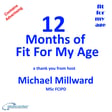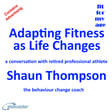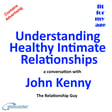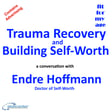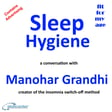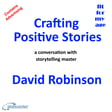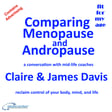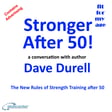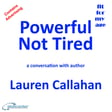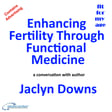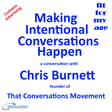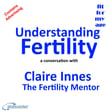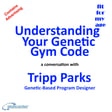
Understanding GUT Health a conversation with Dr. Leke Asong
Dr Leke Asong is a GP who specialises in gut health.
In this episode of Fit For My Age Dr Leke explains to host Michael Millward that most doctors are trained to treat a patient’s symptoms. But as Dr Leke says this is the first step of treatment. Doctors should also investigate the root causes of a patient's condition.
In a far-ranging discussion Dr Leke explains that what we consume has an inevitable impact on how our bodies, brains and minds perform. We can he explains improve our health by improving our diet and our lifestyle.
Key to improving and maintaining good health is understanding how our gut works, how our digestive system works and identifying how to life more harmoniously with our body.
As well as explaining the logic of gut health management Dr Leke also explains the types of food we should be consuming if we want to achieve good gut health.
More information is available from Dr Asong’s website
Fit For My Age is made on Zencastr.
Zencastr is the all-in-one podcasting platform, on which you can create your podcast in one place and then distribute it to the major platforms. It really does make creating content so easy.
If you would like to try podcasting using Zencastr visit zencastr.com/pricing and use our offer code ABECEDER.
You can find out more about both Michael Millward, and Dr Asong at Abeceder.co.uk .
Being a Guest
We recommend that potential guests take one of the podcasting guest training programmes available from Work Place Learning Centre.
Matchmaker.fm
Thank you to the team at Matchmaker.fm introducing me to Dr Asong. Matchmaker.fm is where matches of great hosts and great guests are made. Use our offer code MILW10 for a discount on membership.
Proactive Positive Ageing.
Knowing the risks early is an important part of maintaining good health, that is why we recommend The Annual Health Test from York Test.
York Test provides an Annual Health Test conducted by an experienced phlebotomist who will complete a Full blood draw at your home or workplace. Hospital standard tests covering 39 different health markers are carried out in a UKAS-accredited and CQC-compliant laboratory.
A Personal Wellness Hub gives access your easy-to-understand results and guidance to help you make effective lifestyle changes anytime via your secure, personal Wellness Hub account.
Access York Test https://www.yorktest.com/and use this discount code ABECEDER2.
Three the network
Three has the UK’s Fastest 5G Network with Unlimited Data, so listening on Three means you can wave goodbye to buffering.
Visit Three for information about business and personal telecom solutions from Three, and the special offers available when you quote my referral code WPFNUQHU.
If you have liked this episode of Fit For My Age, please give it a like and download it so that you can listen any time anywhere.
To make sure you do not miss future editions please subscribe.
Remember, the aim of all the podcasts produced by Abeceder is not to tell you what to think, but we do hope to make you think!
Thank you to you for listening.
